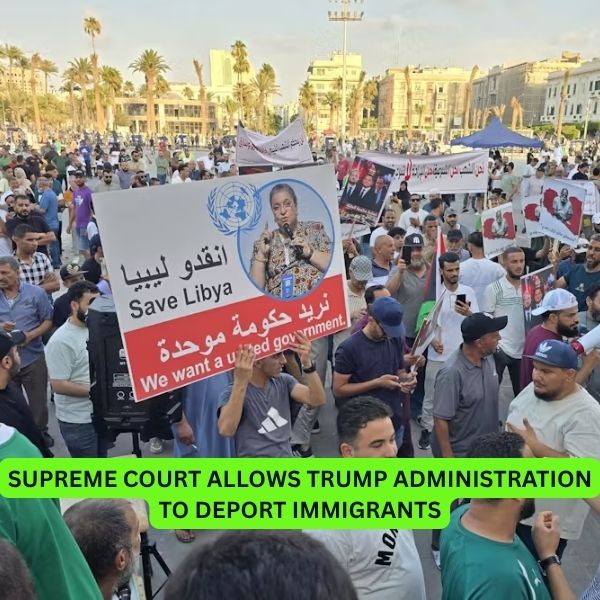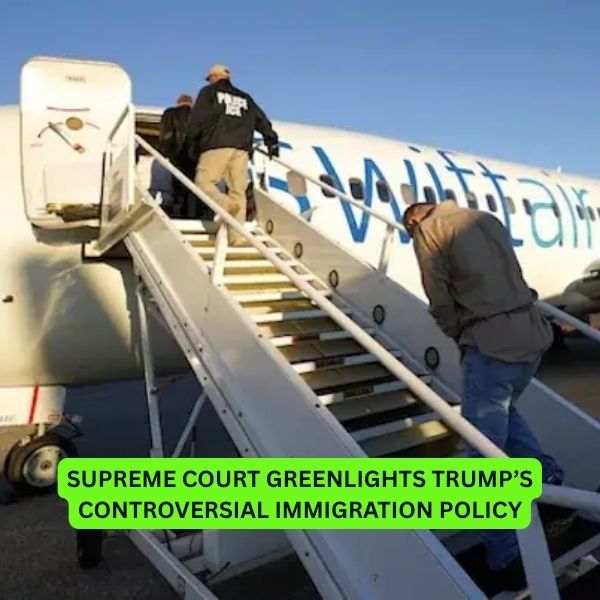In a controversial decision issued June 23, the U.S. Supreme Court ruled 6-3 that the Trump administration can, for now, deport immigrants to third countries they are not from—such as Libya and South Sudan—without giving them time to challenge the move.
This emergency order temporarily overturns a lower court’s April 2025 injunction that had blocked such deportations, citing potential danger and lack of due process. The decision affects not only immigrants facing deportation but could set a precedent for future U.S. immigration policy.
Why This Matters
This Article Includes
The ruling gives the federal government broad power to send non-citizens to unstable, violent countries—some of which they have no connection to. These include:
-
Libya: Lacking a unified government, plagued by militia violence, and cited by the UN for mass human rights violations.
-
South Sudan: Racked by civil conflict and ruled by an authoritarian regime, with severe food insecurity and displacement crises.
Background
The Trump administration has pushed to deport certain immigrants—including individuals convicted of crimes—to countries that are neither their birthplace nor their nationality. In May, eight men (only one from South Sudan) were due to be deported there. A Massachusetts judge halted it, citing risk of harm and a prior federal order requiring notice before third-country removals.
The men were instead sent to a U.S. military base in Djibouti, where they are currently housed in a converted shipping container.
The dissenting justices—Sotomayor, Kagan, and Jackson—argued that the ruling needlessly endangers lives and sidesteps due process. “Thousands will suffer violence in farflung locales,” Justice Sotomayor wrote.
What’s Driving the Policy?
The administration claims that some countries refuse to take back their citizens and that third-country deportations are a necessary workaround. However, critics point to a troubling mix of motives:
-
Backroom deals: Court filings suggest the Trump administration has offered financial incentives to countries like Libya and South Sudan in exchange for accepting deported individuals.
-
Oil interests: Secretary of State Marco Rubio warned that legal challenges to the deportation policy could derail U.S. energy projects in Libya, home to Africa’s largest oil reserves.
Broader Impact
The ruling signals a shift in U.S. deportation policy—previous administrations, including Biden’s, rarely sent migrants to countries where they weren’t born. The Trump administration appears to be expanding that list aggressively.
With more than 2.3 million South Sudanese already displaced and Libya under the control of rival governments and militias, advocates fear these deportations could amount to life-threatening punishment, especially for immigrants with no ties to the receiving nations.
As the case moves forward in the lower courts, thousands could now face immediate removal to countries where violence, torture, and chaos await.













Leave a Reply